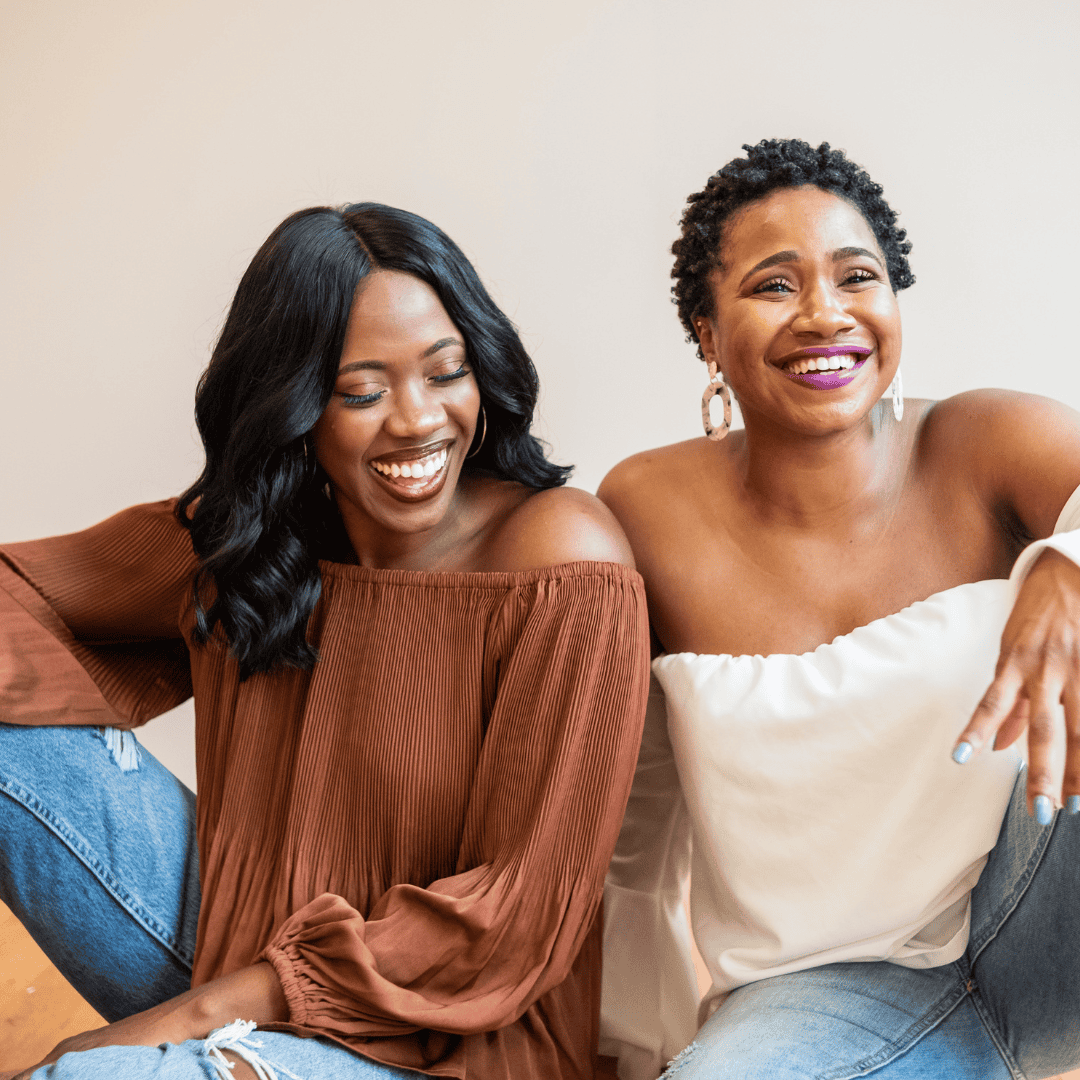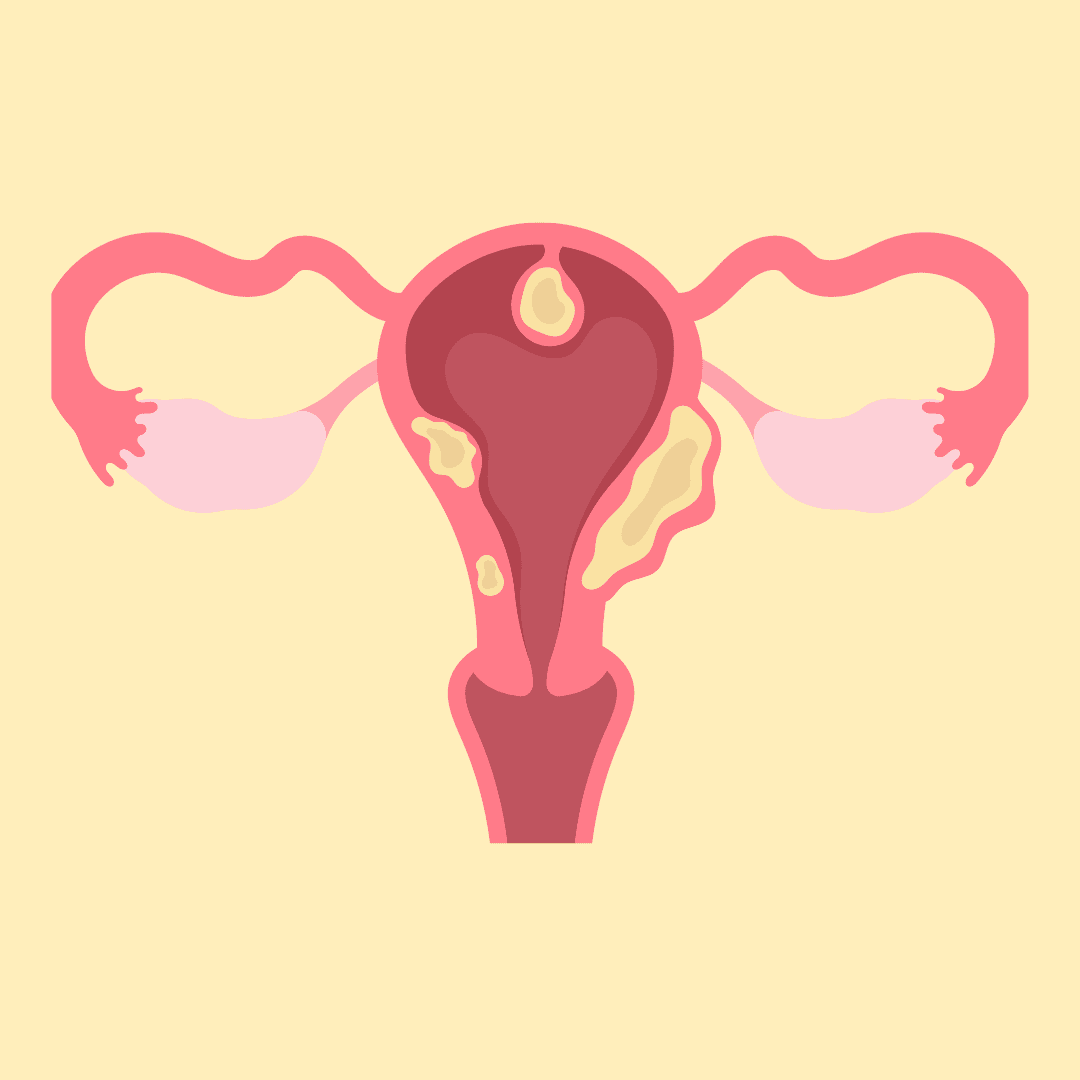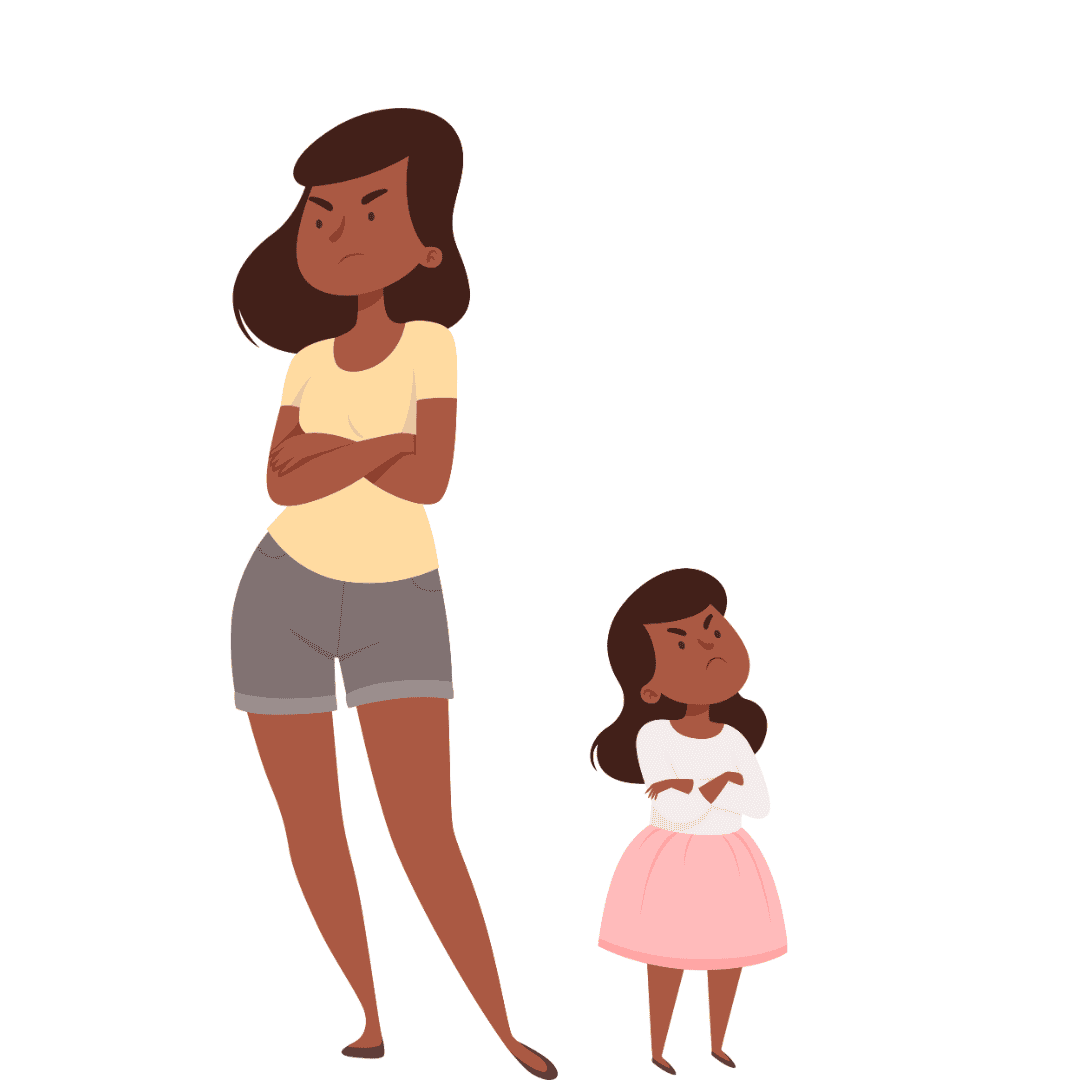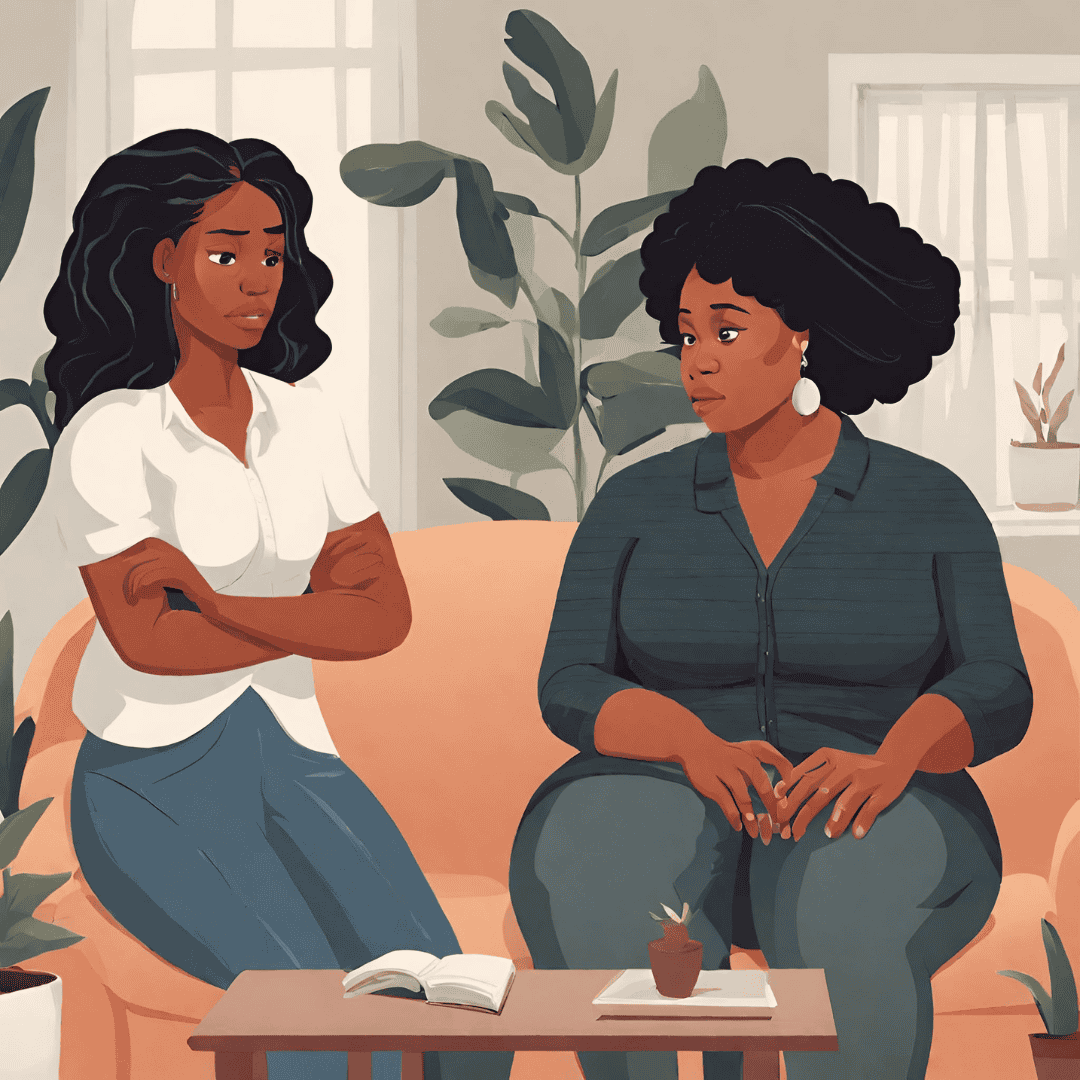-
A New Era: Reshaping The Representation Of Black Women In The Digital Space And Disrupting Stereotypes
We know that the power of media can influence the way we perceive people. We are aware of how stereotypes of black women can perpetuate the negative representation of black women globally.
This can affect black women negatively and this is represented in many ways that degrade black womanhood such as hip-hop videos where black women are used as objects and the term “baby mama” which places a negative stigma on black motherhood.
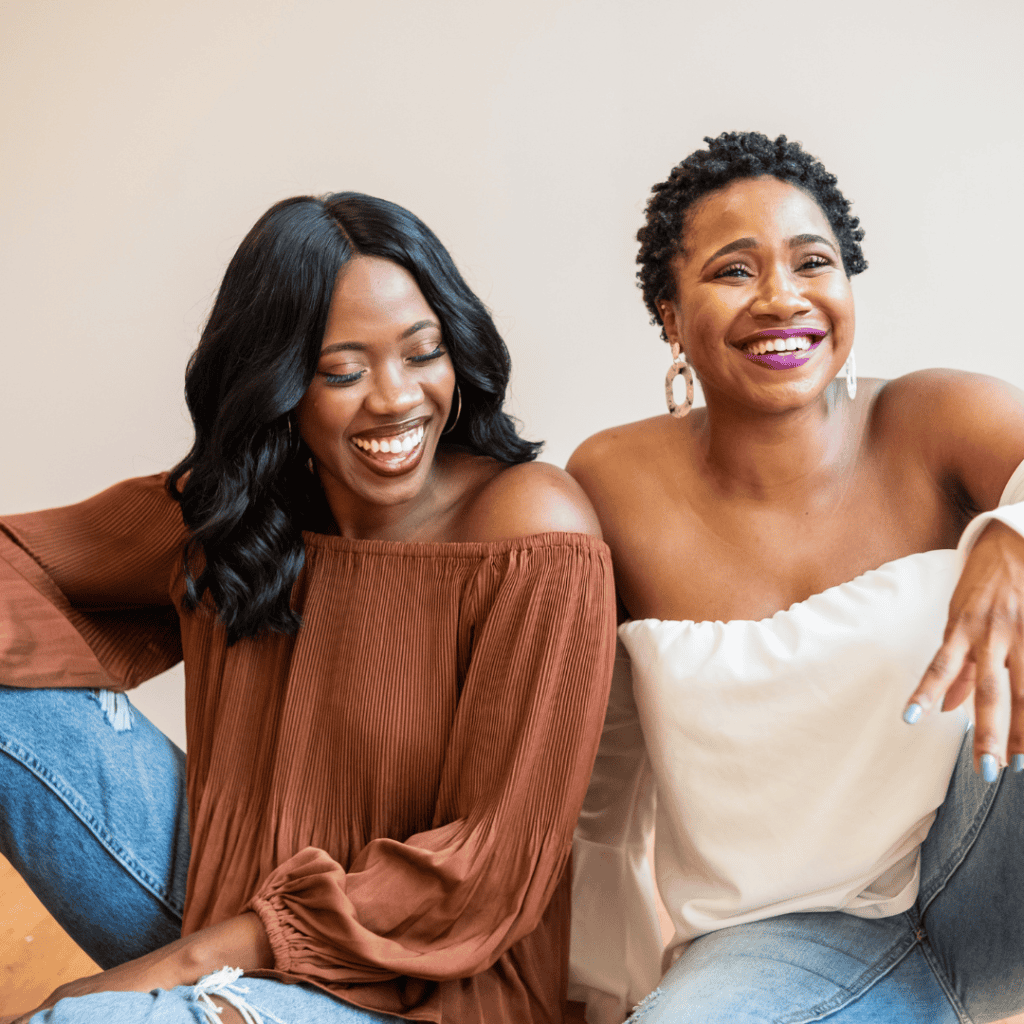
2 black women sitting on the floor with one arm on the knee, posing and smiling. Photo by Alex Starnes from Pexels on Canva. 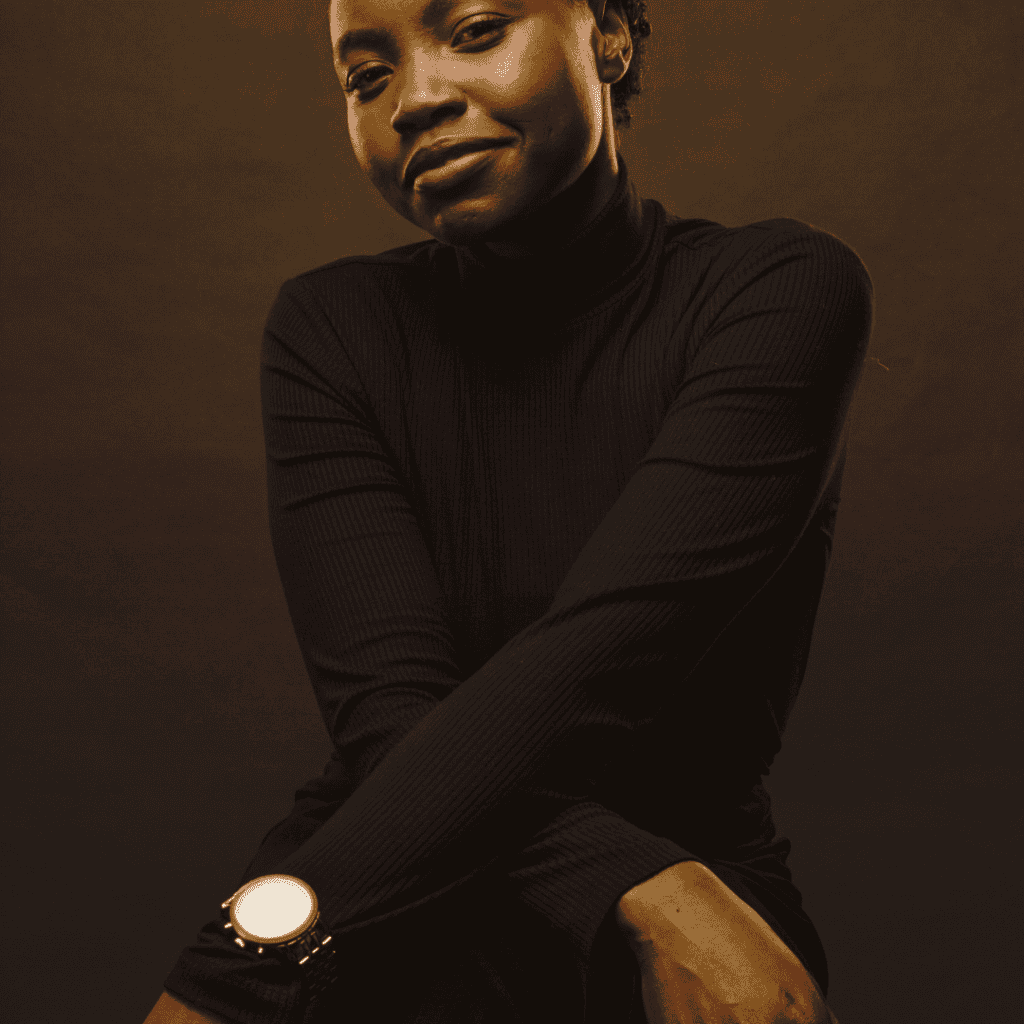
Photo of a black woman with a long long-sleeved shirt by Dellon Thomas on Pexels. This is why this topic is important because positive representation of black women is crucial for self-confidence, higher self-esteem and self-worth which we know is crucial for believing in yourself.
Post-Brexit has amplified how other people’s experiences and opinions about topics such as immigration contributed to the UK leaving the European Union in 2016. Covid-19 affected the mental health of black communities and increased the existing health inequalities since black communities were more affected due to lockdown.
In terms of documenting the experiences of black women, there haven’t been many reports that have spoken about black women’s experiences in the UK. A report by Springer published by Francesca Sobande talks about a report written in 1995 by the European Women’s Lobby that was based on women from different ethnic backgrounds. There isn’t a lot of information about this report so it is unknown how much progress was made from this study.
This is important because social media, blogs and search engines have created spaces for black women to discuss diverse topics that can help build online communities and connect with other black women from different cultures, ethnic groups, languages and occupational backgrounds.
This relates to the stereotypes because digital experiences have enabled many black women to change the way the mainstream media have portrayed black women through the power of storytelling.
The Black Cultural Archive is the only organisation in the UK that archives and preserves the black experiences of people of African and Caribbean descent.
Black Feminist Organisation and Experiences
There has been a history of black feminist organisations that have provided spaces for black women to meet and discuss the issues that relate to black women in the UK during the 1970s and 1980s.

They focused on several political, social and cultural issues ranging from reproductive health, immigration, culture, housing and health. These topics were discussed using their newsletter Speak Out.
There have been events that have focused on black women such as International Women’s Week at the black art gallery in 1986, and the Black Women and Media Conference in the factory in West London in 1984 provided spaces for black women to amplify their voices.
Also, the National Black Women’s Conference hosted by the Organisation of Women of African and Asian Descent in 1980.
The Brixton Black Women’s Group were instrumental in making sure that black women’s voices were heard and felt supported and they provided a place for other black women to meet, network and discuss in a safe space.
Stereotypes And The Representation of Black Women in the USA
The exploitation of the black woman’s image has been known and documented, it has been a profitable yet negative way of stereotyping black women that has controlled the way some people perceive black women. There are 4 black stereotypes that have been dominating the film industry for a long time and black culture. These are baby mama image, Mammy, Sapphire and Jezebel.
Mammy– The Enslaved Negative Stereotype
The Mammy character is rooted in racism and colourism and this is a character that was designed to be degraded by the white audiences. According to the author and professor Marquita M. Gammage of the book Representation of Black Women in the Media, she explained that these images were designed to ridicule black women to justify the mistreatment, racial discrimination and physical and sexual assault of black women.
According to the BBC, this stereotype originated in the USA and was influenced by transatlantic slavery in the USA. Historians have stated that 90% of enslaved black women during slavery at the time died young and this implies that the idea of Mammy is fictional.
Mammy is described as an overweight, dark-skinned black woman, a myth created to romanticise the idea of slavery, she worked in the white slaveowner’s house was loyal to the white family and prioritised her needs towards the children of the slaveowners more than her own family.
In her book, Professor Gammage explained that this myth was created to maintain the racist system because slavery was a legal, economic system that produced wealth for the white slaveowners.
Racist films such as Gone With The Wind have contributed to the development of black characters that ridicule black people. In the film, the Oscar-winning actress Hattie McDaniel plays a maid who isn’t seen as feminine or attractive. She was operating from her masculine energy based on the environment that was designed to abuse her. One thing to note is that she was in her superwoman image of doing everything.
This film revealed many concepts such as beauty and femininity, because in the West whiteness is the standard of beauty and anything that is not white is the opposite. This is why Hattie McDaniel and the other black actresses were not perceived with femininity, honour and grace in the film. These roles were not created for positive representation of black women but rather harmful to black womanhood.
The Jezebel Stereotype
Another famous stereotype used to devalue black womanhood is the Jezebel image. This image was created as a sexually liberated black woman who could potentially lure white men to bed.
She was perceived as a younger or middle-aged woman who was hypersexual and couldn’t control her sexual desires. According to the Open Edition journal, Jezebel was a promiscuous woman and as a result, this justified the white slaveowners to sexually abuse enslaved black women based on a myth.
An example that was used in Professor Gammage’s book was Olivia Pope from Scandal. Even though Ms Pope is smart and driven, the idea that she could be seen as Jezebel was the fact that she had an affair with the President and this may look like she lured the President when in reality they made their own decisions to have a secret affair.
The Sapphire Stereotype
This stereotype is based on the idea of the so-called angry black woman, this was an attempt to control how black women are supposed to feel when we know the importance of expressing our emotions. When black women are not allowed to process our emotions we are given the label-angry black woman.
In comparison, the benefits of white privilege allow white women to process their emotions means that the whole group of white women isn’t judged and because white men have uplifted white women as the standard of beauty where whiteness is valued globally, white womanhood isn’t judged, and white women are welcomed with empathy when they are angry.
An article by the BBC portrayed Serena Williams as the “angry black woman” when she was given a penalty for breaking her racquet, another penalty for calling the umpire “a thief” and a code violation for coaching during the US Open final in 2018 against the mixed-race tennis player Naomi Osaka. This included getting fined £13,000($17,000).
In comparison, in the film Home Alone, there is a scene where the mum is at the airport feeling angry because she left her son home alone while she was talking to the staff at the airport.
If you watch the scene you can tell she’s upset but if she was a black woman who left her son home alone- most likely she would have been labelled crazy and would have been stigmatised as a black mother.
In this case, she would have been emasculating her husband, lacked maternal instinct and did not care about her responsibilities as a mother.
This is how deep the racist stereotype of black women has influenced the perception of black women which is why it is important to point out the hypocrisy because we forget how deep the racial stereotyping has even influenced how black mothers are treated in the black community.
The Baby Mama Stereotype
According to the 34st the term “baby mama” is an African-American slang given to black women who are mothers. Baby Mama is being used to portray black women as a problem because it shows much respect and values black men place on black women. Both parents have responsibility for raising their child however, in the black community, the mother tends to be ostracised more compared to black men who are absentee fathers.
An example is Russell Wilson who raises her son that she had with rapper Future who is uplifted by black men despite having children with different women and not taking accountability for being more involved with his children.
This is something you hear on social media about many black men who don’t feel the need to raise their children and provide financial support which sends the wrong message to the younger generation and this is something that needs to be discussed especially in the UK.
A single parent shouldn’t be blamed for raising her child when the father decides not to be in the picture. She is already in her masculine and feminine energy to nurture and provide and this explains why black women have to be strong to cope because it can lead to health issues.
The Positive Representation of Black Women
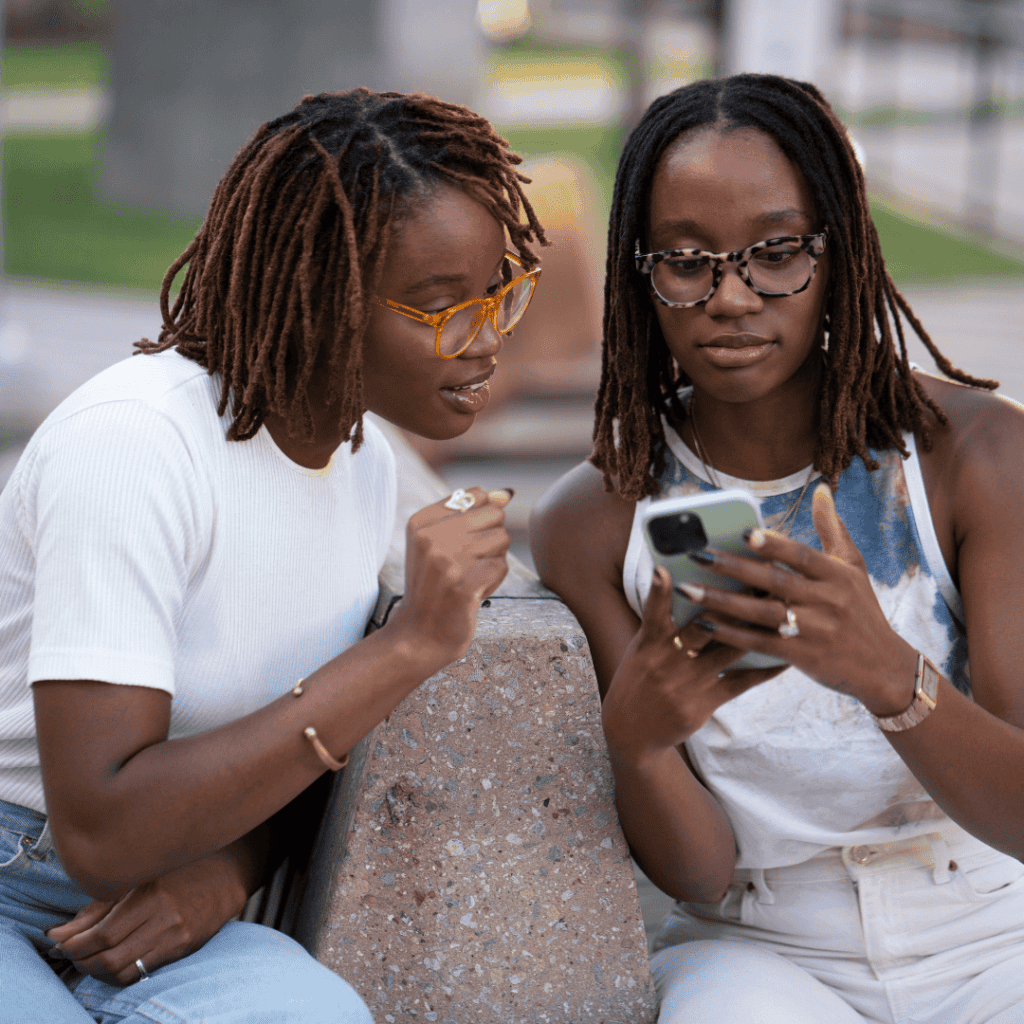
2 black twins with locs looking at their smartphone. Photo by THE PALMER on Canva The blogosphere and social media have provided great opportunities for black women to talk about their experiences. It has allowed black women to amplify their voices online and enable black women to connect with other like-minded black women.
Digital content reflects the authentic voices of black women globally instead of relying on the mainstream media to tell our stories, this opens up more opportunities for black women to take control of their narrative.
It disrupts the stereotype that the mainstream media has been using to portray black womanhood. Search engines such as YouTube have provided many opportunities for black content creators because black women can search and build communities in places that aren’t as diverse such as gaming, anime or beauty.
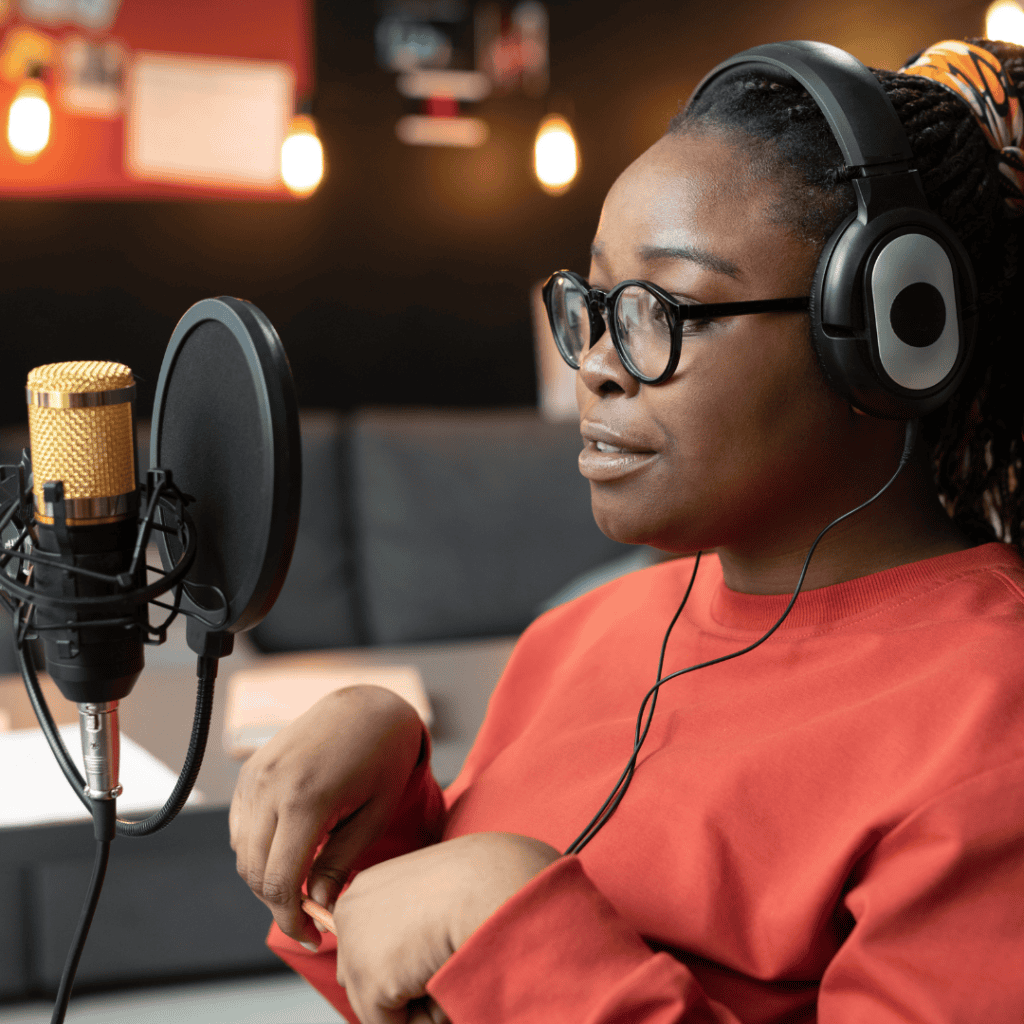
A woman recording her podcast. Photo by Anna stills These publications are some of the independent online magazines that cater to the experiences of black women. They are:
There are more recent TV series that focus on black women’s stories and experiences such as Insecure, Awkward Black Girl, How To Get Away With Murder, Scandal and Queen Sugar which features a dark-skinned actress called Rutina Wesley as Nova Bordelon as one of the main characters who is a bisexual, free-spirited and spiritual woman.
Recently, Channel 4 aired the show ‘Queenie’ based on the book of the same name by the author Candice McCarty-Williams. The book is great, frustrating and enjoyable(I would recommend reading it if you haven’t read it yet).
Conclusion
This post explores the representation of black women looking at digital experiences in the UK and negative stereotypes and the USA. The representation of black women can progress when we focus on telling our stories.
Yes, it’s important to see yourself positively on TV, however, there is a need for black women to continue telling the narratives are authentic and beneficial for better representation.
This is why platforms such as Black Ballad and Black Girl Fest are as important as TV shows such as Insecure because the show was created by black actress and entrepreneur Issa Rae.
It was joyful to see the representation of black millennial women living life dealing with adulting, relationships, ghosting and family in a way that shows the range of emotions and without the need to ridicule black women.
Also, black women have a huge spending power and this means that we can invest in diverse stories and feature black women as multifaceted with various interests, doing activities that you don’t see day to day and the stories are compelling even if they involve suffering, it’s written from black women’s perspective.
Thank you for reading this blog post, I hope you enjoyed this topic and if it was interesting to you, let me know what you thought about it in the comments and let’s start a conversation. I will be writing more about this topic because documenting our experiences as black women is crucial.
eBook: Representation of Black Women in the Media: The Damnation of Black Womanhood by Marquita Marie Gammage.
-
3 Overlooked Black Women of the British Black Panthers
Disclaimer: This blog contains content that is written about British black Panthers for educational purposes. The information provided is accurate to the best of my knowledge and there may be omissions and errors. I am not a qualified teacher or historian and should not be seen as educational advice. I reserve the right to run and manage my blog and the focus of this blog may change at any time.
These 3 influential black women are known for their community activism, organising and championing black people’s rights especially black women’s rights.

An illustration of 2 black women posing by the bookshelf. Illustration from AI on Canva. Who is Altheia Jones-LeCointe?
A physician and a research scientist from Trinidad and Tobago, she was considered the leader of the British black Panthers, her experience in politics started when she was younger. Her parents were active in politics and were part of the People’s National Movement.
She moved to Britain to study chemistry at University College London and was shocked about the hostile treatment and racism she received as a black woman in the 1960s and sought groups to join that reflected her experiences.
When the British black Panthers came to support black students at the university, that is when she became more politically active in the university and joined the British Black Panthers.
During the Mangrove Nine trial, she represented and defended herself in the court system and this led to the Mangrove Nine trial being acquitted after a long trial that lasted 55 days.
She became one of the renowned activists in the British black Power movement during the 1960s and 1970s.
Who was the Brixton Black Women’s Group?
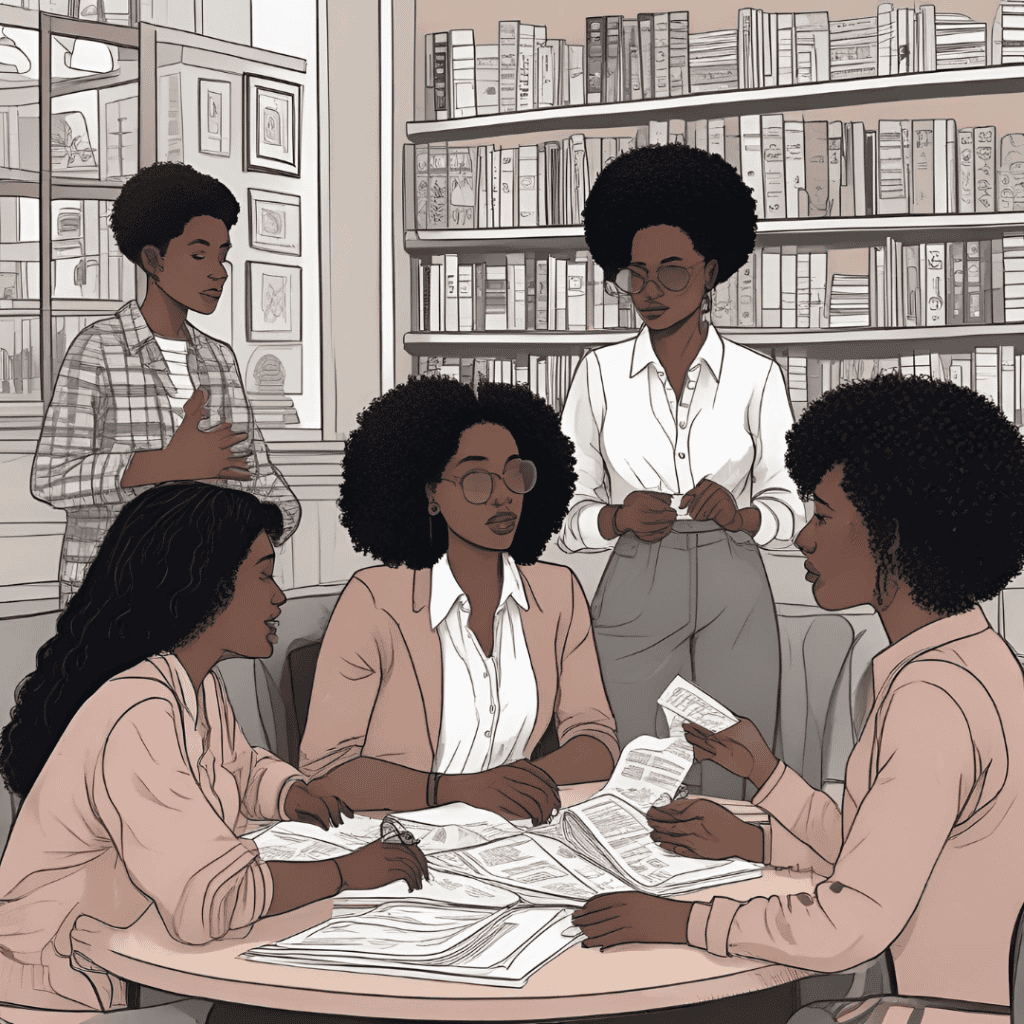
Illustration of black women at a meeting in a bookshop created using AI on Canva. After the British Black Panthers split as an organisation, Beverley Bryan, Olive Morris and Liz Obi left to create their organisation called Brixton Black Women’s Group.
This was established as a result of sexism and a lack of interest in empowering black women. They created a safe space which was necessary to focus on addressing issues concerning black women.
How did they help black women?
The organisation offered advice and support to black women in the local community, similar to the British black Panthers but this time, they were more focused on the experiences of black women.
Who is Olive Morris?
Olive Morris was an influential community activist, feminist and leader, who became active in politics when she witnessed a Nigerian diplomat being assaulted by police officers because he had a Mercedes. When she rushed to help him, she ended up being assaulted by policemen and fined.
She defended the rights of black people who squatted in empty buildings. Squatting was a common practice that happened as a result of racist housing practices. This meant that some black families were put in poor accommodation that wasn’t fit for the standard of living.
What happened after she left the British black panthers?
After she left the Panthers, she focused on building the Brixton Black Women’s Group and moved to Manchester and studied Economics and Social science degree at the University of Manchester.
While she was studying she created the Manchester Black Women’s Cooperative. She travelled globally, writing and lecturing on topics based on women’s and black empowerment and racism.
How did she pass away?
In her final years, she collaborated with another activist and writer Stella Dadzie and created OWAAD(Organisation of Women of African and Asian Descent). While she was in Spain she started to feel ill and she discovered that she developed blood cancer. Olive Morris passed away on the 12th July 1979. from a form of cancer aged 27.
Who is Beverley Bryan?
A retired professor, writer, activist and teacher, Bryan moved from Jamaica to England and attended the same school as the late activist, close friend and founder Olive Morris.
In her youth, she joined the West Indian Centre and then joined a black arts workshop and travelled to different youth clubs across the country. They used poetry and spoken word to challenge negative racial stereotypes.
After completing her teaching training at Keele University, she moved to Brixton and joined the British Black Panthers. She used education to solve issues in the black community helped educate children at the supplementary schools and taught Maths, English and History.
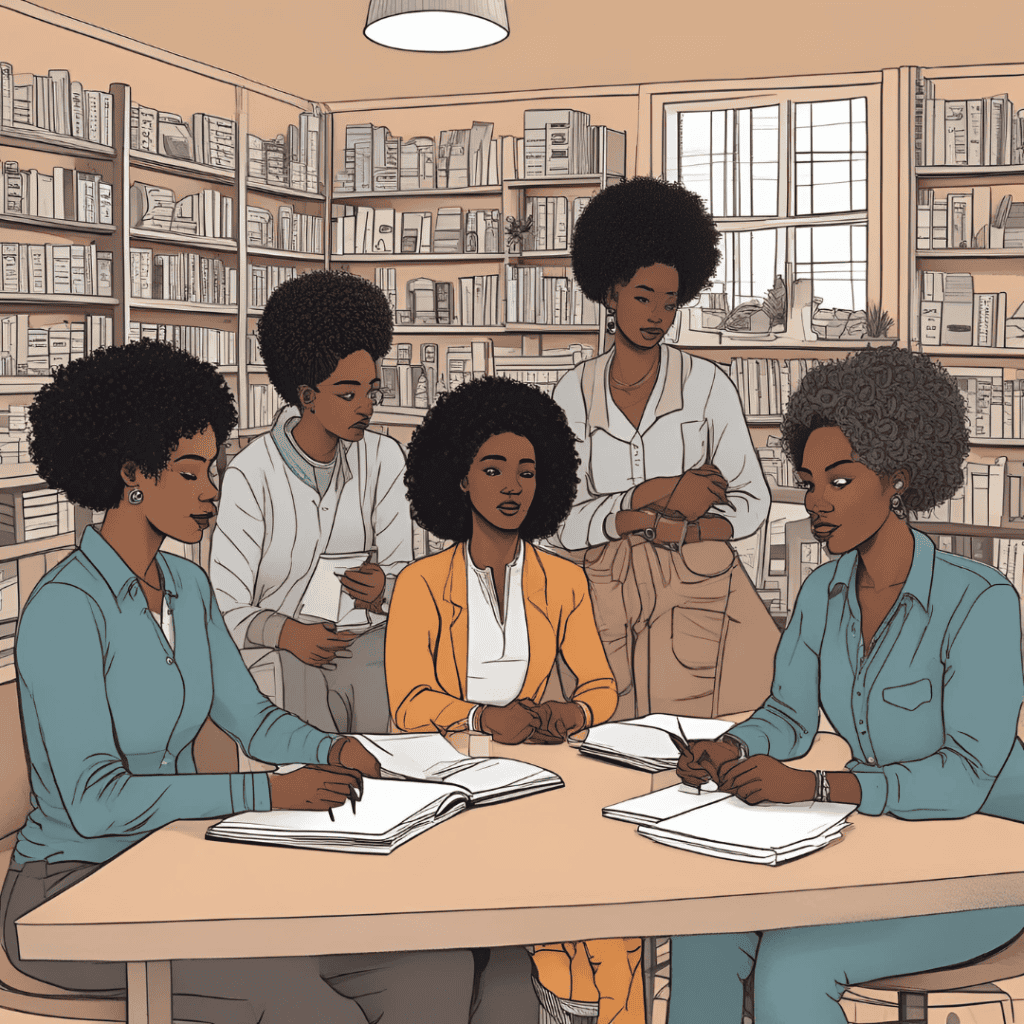
An illustration created by AI by Afro Lit Stories on Canva. Final Thoughts
I hope you enjoyed reading the article about the 3 powerful women and how influential they are in the black community as educators, activists and community organisers who were determined to make changes in the black community using education and knowledge of self.
If you are intrigued by black British history and want to know more about black women’s contribution then share this article with another black woman who enjoys reading this topic. And don’t forget to leave a comment and let me hear your thoughts below.
Related Articles
Afro Lit Stories
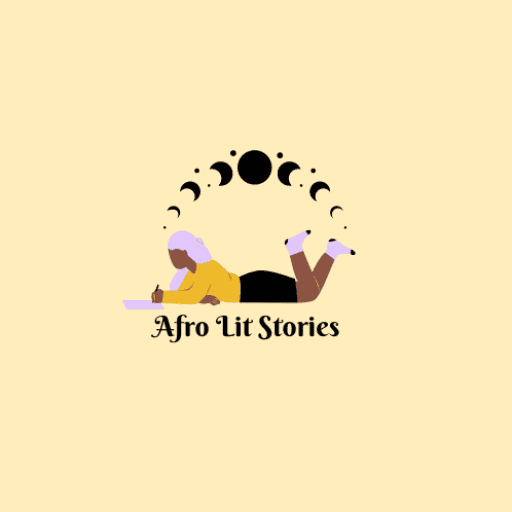

Healing through storytelling, elevating black millenial women, one mindset shift at a time
